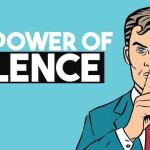M
ultiple articles in media such as The Washington Post and The Atlantic have warned about the perils of
digital
addiction, noting that smartphone addiction has led to higher rates of sadness and suicide among youth. Alarming behavioral alterations have also occurred. Adulthood continues to be postponed as children and teenagers appear to be less interested in driving or handling money these days.
A short answer was written by the author of Hooked: How to Create Habit-Forming Products.
He was referring to a legal provision enacted to limit the design of some electronic devices.
Senator Josh Hawley of Missouri introduced the Social Media Addiction Reduction Technology Act, which was notable for how strongly it would control the design of certain digital goods, despite its forced moniker.
The New Reefer Madness Is "Tech Addiction," Eyal Nir
Eyal compares the anger about computer addiction to the Reefer Madness that swept the United States decades ago. All people need to do is turn off their phone notifications, according to Eyal, and they will no longer be distracted.
The issue, he believes, is that individuals are continuously allowing themselves to be distracted, rather than becoming hooked to cellphones.
Who’s right?
First, after decades of witnessing generational swings in behavior, one writer concluded that childhood is being postponed. However, the issue is that these trends do not represent the complete story. For example, poor countries are typically where adulthood is not postponed at all — that is, children are pushed to become adults at a much younger age. Because they don't have a choice, youngsters there transition to maturity sooner rather than later. They would starve to death if they didn't grow up.
It's usually a good sign if a culture does not force youngsters to become adults.
The romanticization of a bygone period when children "wanted" to drive and take on financial responsibilities is a mood that is nostalgic but not rooted in reality. Children do not "want" to do these things, but if everyone else in their environment is doing them, they might convince themselves that they do as well - an important psychological trick that helps them cope with a harsher reality.
It's absurd to dismiss smartphone addiction as a simple form of entertainment. As Tristan Harris put it, there are a thousand individuals on the other side of the computer trying to find out how to get you addicted during their working hours. It wasn't even close to being a fair contest. And if you're even slightly realistic about your psychological flaws, you'll see how easily media and technology may affect your thoughts and habits.
Not only are people being manipulated and controlled, but the technologies themselves are based on ideas that have been studied and polished for almost a century since Watson established the behaviorist school of psychology in the early twentieth century. To put it another way, it's a perfect storm, complete with three tragedies.
-
On the internet, there are business structures (based on advertising) that incentivize users to keep their attention at any cost.
-
Decades of research into the psychology of manipulation have informed artificial intelligence.
-
A fragile and confused human intellect that is distracted.
The trouble is that things are just getting worse as time goes on. The mind becomes more distracted as technology advances, and surviving business models become more prevalent and powerful.
Many well-intentioned critics have advocated for a change in the advertising model. The premise is that if different economic incentives were in place, different outcomes would occur. The difficulty is that the online advertising industry does not operate in this manner. Business models, like technology, are not based on ethical ideals. Alphabet (Google) and Facebook's Meta (Facebook) will always do what is profitable.
And these businesses are the driving forces behind the online advertising sector, which is a fast-paced, ruthless marketplace with little time to reflect on its actions. It, like the stock market, must continue to operate or the entire system will collapse.
Change is conceivable, but only in terms of format, not in terms of content.
Although the nature of online advertising is continually changing, the essential model remains the same. You can only make money online if you draw attention to yourself. You can also use the money of attention to promote your own or someone else's wares.
The format may change over time — movies and audio may replace text, and intrusive advertisements may be replaced with subtle advertisements — but the game will remain competition for attention.
Shifts in behavior among the youth have always been a problem for every generation.
"[Young people] are conceited because they have not yet been humbled by life or confronted with the power of circumstance."
— Aristotle, Rhetoric, 4th Century BC
"The beardless youth squanders his money because he does not foresee what is useful."
— 1st Century BC Horace
The older generation has bemoaned the folly of the younger generation for as long as civilizations have existed. Knowing this, saying "this time is different" is ridiculous. However, it is a fallacy to assert that "times will never be different."
The speed with which civilization advanced technologically in prior centuries is unmatched by the speed with which civilization advances today.
Much of the wisdom of the past can be kept, but it is a mistake to compare a society in which humans have delegated so much decision-making to algorithms to a world in which individuals were isolated from one another. In today's hyper-connected world, you may get advice and wisdom from not only the village elder or your grandmother, but from the entire history of civilization, past and present.
And this is a fantastic present. However, the downside of this tradeoff is that this person will be subjected to relentless advertising and predatory tracking by corporations whose business model is based on the systematic exploitation of the brain.
People who comprehend technology are the ones who are aware of its dangers. Steve Jobs was well aware of the consequences of working long hours in front of the computer. He appears to have limited the length of time his children were permitted to utilize the goods he helped create. In his song Ten Crack Commandments, Notorious B.I.G summed it up best when he said, "Number 4, I know you've heard this before." Never grow too comfortable with your supply."
Any new technology has the inherent quality of being unconcerned with your well-being. That is not the way the economy works. The products that are in high demand are the ones that sell (for whatever reason, including addiction). You'd think these folks lived on a different planet where firms formed monopolies by being excellent stewards of the land, given the level of public anger and disbelief at how companies generated money by preying on people's psychology. People, as is so common, look for morality in the wrong places.
A Distracted Mind
Unlike prior generations, who experienced periods of extreme ennui, the current generation is never bored. One of the unquestionable achievements of technology in our times is that boredom is no longer an option. You'd have to make an effort not to be entertained while watching, listening, playing, chatting, posting, or scrolling.
This is a genuinely great achievement. But, once again, it comes with a subtle and perilous trade-off. When you're bored, your mind wanders, reflects, thinks, and feels. That's a nice thing in general. We can break out of our routines, fix our faults, and reroute our lives through boredom. The space between our activities, or the gap, is critical to good functioning. It's something the Taoists have known for a long time, but which many people appear to be completely unaware of.
Long ago, dictators realized that a preoccupied mind is weak and susceptible to propaganda. If you wanted to brainwash someone, you'd do all you could to keep them from thinking quietly. Keeping people linked in and "connected" is the best approach to maintain control. The advertising industry did not develop distraction; rather, it was a late adopter.
Intuitively, we believe that living a life devoid of boredom is a good thing. Greater thrills equal more pleasure, and thus more happiness. In Brave New World (1931), the visionary Huxley vividly described a world in which the majority of human beings would happily submit to indoctrination not because they were being restrained against their will, but because it was their free choice. Comfort was preferable to struggle, and pleasure was preferable to suffering. They had the opportunity to live a life of perfect joy, and they took it – at the cost of being human.
The Conundrum
However, technology has become so ingrained in how we live (convenience), that staring at screens is frequently the only way we can work, communicate with friends, or read the news. What can we do to avoid it? How much "liberty" would we get as a result?
Herein is the conundrum.
It is not a good idea to throw away your smartphone since you require it. Allowing oneself to be completely or partially controlled by technologies that drive you to grow addicted to them is also a bad choice.
An only logical compromise is a form of self-discipline in which technology is viewed as any other dangerous substance when used excessively. The problem is that, if such a solution exists, it is only available to a small group of idealistic people with extraordinary willpower.
However, as the digital world develops, these individuals will become obsolete as they are no longer part of the new economic structure.
The conundrum arises from the lack of a clear solution.
Unfortunately, most individuals do not realize how vital it is to protect their time from a world that is competing for their attention.
Harari summed out our position in Sapiens in a rough but accurate way. He stated that given the current state of the modern digital economy, we have two options. One option is to simply relax and let the algorithms guide us in whichever direction they see fit, including the information we consume, the things we purchase, and even the relationships we pursue. The second option is to gain a better understanding of oneself than algorithms can.
If you're willing to fight back. Then you may start developing better behaviors that keep a healthy space between you and your screen. Atomic Habits and The Power of Habit are two books that can assist you in your endeavor.
And if you want to get a better understanding of yourself on a deeper level, read The Dichotomy of the Self, a short book that tackles the best philosophical and psychological principles about human nature in an accessible but not simplified manner.








